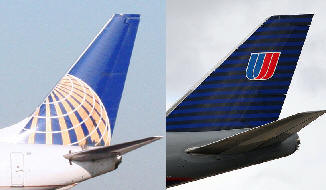 |
|
|
|
|
|
|||
|
By Daniel Baxter |
||||
 |
April 29, 2010 -
Fitch Ratings believes that
Alternatively,
Fitch sees small market airports as well as domestic connecting hubs at
the higher level of the risk spectrum for utilization changes with some
benefiting from expansion while others losing some if not most
connecting operations. |
|||
|
|
||||
|
'Traffic demand
and financial considerations will be the key drivers of airlines
actions,' said Seth Lehman, Senior Director at Fitch. 'Regardless of
where the economy is, service shifts have a varying degree of impacts on
the operations from as little as one airport gaining or losing service
to as many as dozens of airports being impacted nationwide.'
Fitch believes
that each successful merger among the remaining legacy carriers can have
meaningful repercussions to a number of domestic markets as carrier
actions on capacity will likely be driven on cost considerations, yield
opportunities, and elimination of duplicative services.
On the other hand,
mergers could have a positive effect as it could strengthen the merged
carrier's ability to compete on more routes and possibly protect market
share from the encroachment of low cost carriers. Therefore, stability
and even gains in service levels are realistic where opportunities
allow.
Another segment of
airport types at risk are the ones serving smaller markets (i.e. two
million passengers or less) that are historically dependent on just a
few carriers for air service. Depending on the pair of carriers
implementing a merger, there will likely be locations where both such
carriers are the dominant airlines serving the market.
|
||||
|
On a combined
basis, service reductions may be expected and a back-fill from other
legacy or low-cost carriers may not immediately take place. Under those
circumstances, an airport's financial profile is likely to weaken and
thus pressuring credit quality.
Fitch notes that
while the airline sector has elevated levels of volatility, airport
managers have demonstrated the ability to adapt to the changing
landscape as noted by the fact that the many past mergers and
liquidations of carriers have not led to bond defaults. Airports as a
transportation class operate successfully as self-supporting
enterprises. |
| Other News Stories |
|
|
| ?AvStop
Online Magazine
Contact
Us
Return To News
|
|

